

We provide innovative functions that make the everyday (business) lives of our customers easier. The quality of our high-quality shirting fabrics is our highest priority – from the raw materials to the finishing. We work hand in hand with our suppliers and partners to guarantee short and more transparent pathways for our customers. When it comes to finishing, we have a competent partner on our side with AG Cilander. Together, we focus not only on the functionality and quality of our fabrics, which is apparent in their look, feel and care properties, but also on the protection and safety of humans and nature.
Sustainability is reflected in the range of certifications and sustainability hallmarks that we have been awarded for the implementation of sustainable manufacturing and working conditions, among other initiatives. By complying with the strictest environmental conditions, we periodically earn new certifications alongside those we have already been granted, some of which we have held for decades. In this way, we continuously improve our company's level of environmental sustainability. All of our products comply with the currently applicable RoHS Directive 2011/65/EU and 2015/863/EU and the REACH Directive of Regulation (EC) No. 1907/2006.
Certificates
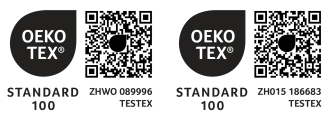
One of the most recognised labels in the world for non-toxic textiles. If a textile item has been assigned the STANDARD 100 label, customers can be certain that all components of the item pose no risk to health.
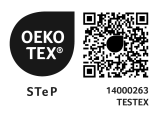
Independent certification system for environmentally friendly manufacturing processes and socially responsible working conditions in the textile industry, applicable to all processing levels.
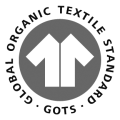
Globally recognised textile processing standard for organic fibres, including environmental and social perspectives, which independently certifies the entire supply chain according to a clearly defined, more transparent list of criteria.
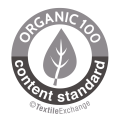
Products certified to the Organic Content Standard 100 contain at least 95% certified organically grown cotton. (Initial certification: 2021, certified by Ecocert Greenlife, 151780)
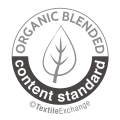
The Organic Content Standard (OCS) verifies organically grown cotton and tracks it from source to final product. (Initial certification: 2021, certified by Ecocert Greenlife, 151780)
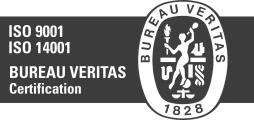
Internationally recognised and most widely used proof of conformity for quality management (ISO 9001) and energy management (ISO 14001).
Chemicals regulation that regulates the registration, assessment, approval and restriction of chemicals.
Gives consumers the assurance that the textile or leather product has been produced in environmentally friendly factories under safe and socially responsible working conditions and is made of materials that have been tested for harmful substances.
We fulfil the MADE IN GREEN requirements, you can have your product certified on request.